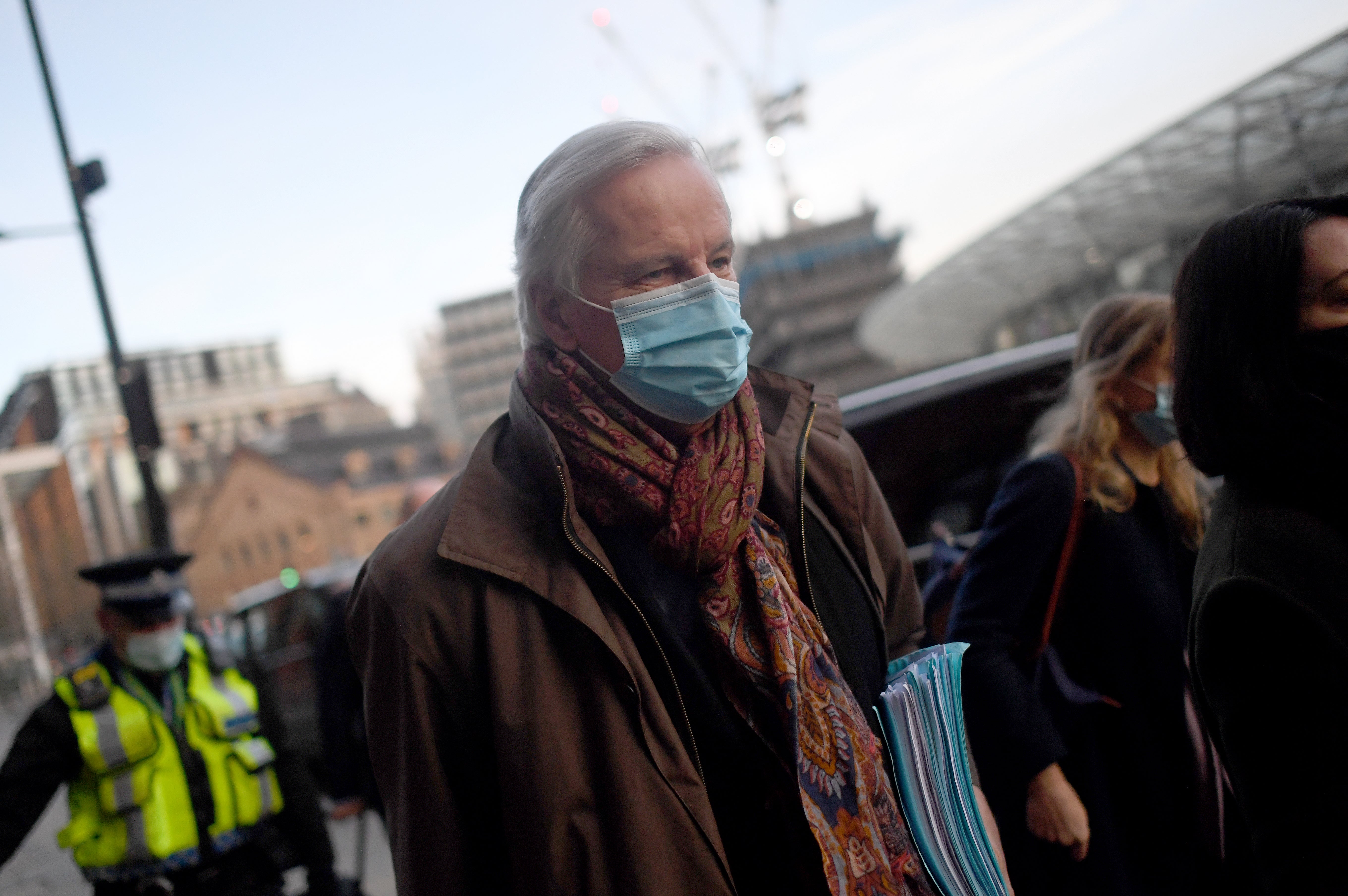What happens if an EU leader vetoes a UK trade deal?
Any deal must be approved by the European Council and European parliament, writes Andrew Woodcock


Attention has understandably been focused over the last weeks and months on the UK’s efforts to strike a trade deal with the European Commission, but agreement with Brussels is not the last hurdle to be overcome to avoid a no-deal Brexit.
As the deadline of 31 December approaches, the question has also been raised over what would happen if one of the EU’s 27 member states vetoes the deal.
France has been open in its warnings that it could wield its blocking vote if President Emmanuel Macron believes that any deal negotiated by Michel Barnier fails to protect its national interests, and particularly the needs of its fishing industry.
Mr Macron is said to believe that a no-deal outcome, despite the inevitable disruption at ports such as Calais, would not be an unalloyed disaster, as it would be likely to force the UK back to the negotiating table next year in a weakened position, its bullish politicians chastened by the experience of months out in the cold.
With Germany currently holding the presidency of the EU Council, chancellor Angela Merkel has been the loudest voice for compromise in search of agreement, fearing the impact of no deal on the continental economy.
But the Netherlands, Denmark and Italy are believed to share Parisian concerns that Mr Barnier may be making too many concessions in the hope of finishing his five-year stint as chief negotiator on a high.
Of course, European Commission president Ursula von der Leyen is highly unlikely to agree any deal which she does not believe to have the support of the EU’s 27 national capitals – and particularly of a major player like France.
EU member-state ambassadors are regularly briefed by Mr Barnier on the progress of negotiations and his freedom to act – and that of the commission – is constrained by a mandate agreed unanimously by the 27 leaders.
But this does not guarantee that none of the 27 will block a Free Trade Agreement at the summit being held by video conference on 10-11 December, or a possible emergency summit later.
Refusal by an individual national leader is viewed as more likely than rejection by the European parliament, which must also ratify the deal before it comes into effect. And the commission believes that it will not be required to obtain the approval of the 27 national parliaments in a process which almost scuppered a deal with Canada in 2016.
If Mr Macron – or one of the other leaders – says “non”, the most immediate consequence would be an enormous row, with each side blaming the other for the breakdown as frantic efforts are made to salvage an agreement which will paper over differences.
Negotiators could be expected to work round the clock to try to patch up a deal which will fly, while Boris Johnson may find himself forced to take personal charge with phone calls or even flying visits to his European counterparts.
Any veto could of course be no more than a matter of brinksmanship, designed to squeeze out extra concessions at the moment of maximum pressure before being withdrawn in time for the deadline.
But if either the European Council or European parliament fail to approve the deal agreed over almost a year of negotiation, then the UK will face a no-deal Brexit with less than three weeks to prepare.
That means a sudden switch onto World Trade Organisation rules for commerce with the EU, with tariffs on imported goods including 10 per cent on cars and an average 18 per cent on foodstuffs.
And it would poison the atmosphere between the UK and EU, undermining cooperation in areas far beyond those covered in the FTA, such as security, financial services, data transfer, and law and order.
The Office for Budget Responsibility has forecast that a no-deal Brexit would knock 2 per cent off UK GDP next year, and add to the expected 4 per cent permanent hit to the national economy expected from EU withdrawal.
Despite Mr Johnson’s insistence that the UK can “thrive” without a deal, economic reality suggests that both sides would swiftly be forced to swallow their pride and return to the negotiating table in 2021 in the hope of finding an agreement that will be acceptable to all.
Join our commenting forum
Join thought-provoking conversations, follow other Independent readers and see their replies
Comments
Bookmark popover
Removed from bookmarks